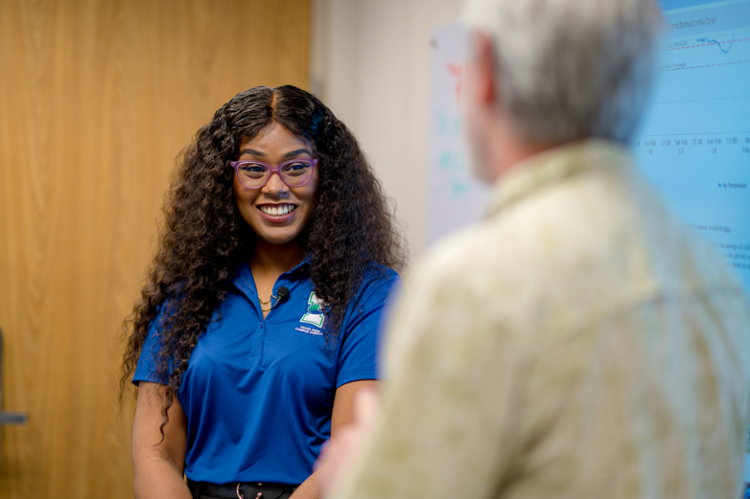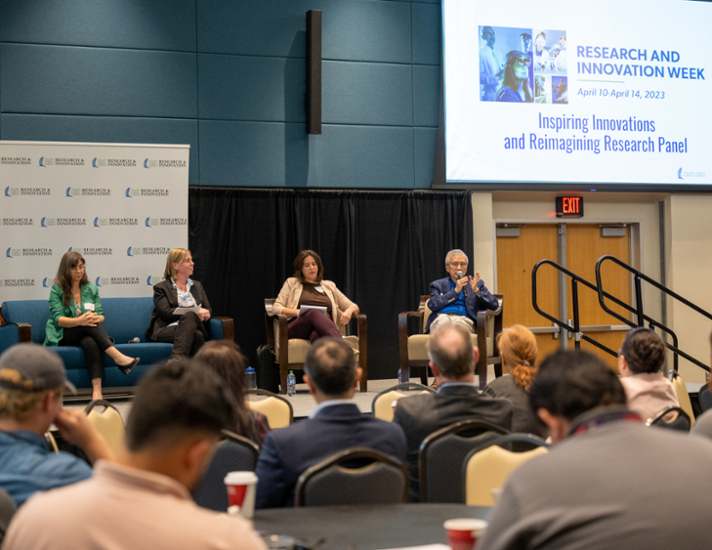Conrad Blucher Institute Welcomes Dr. Philippe Tissot as Interim Director
CORPUS CHRISTI, Texas – With a new year comes the beginning of a fresh chapter for Texas A&M University-Corpus Christi’s Conrad Blucher Institute (CBI). Dr. Philippe Tissot, who has served as CBI’s associate director since 2011, took on a new role as interim director on Tuesday, Jan. 1. As an Islander and a CBI researcher for nearly 20 years, Tissot strives to continue CBI’s positive impact and its close relationship with the community while pushing CBI to be an industry leader in geospatial science research and engineering.
When Tissot, who grew up in the mountains of Switzerland, first arrived in Texas to pursue a doctoral degree in nuclear engineering from Texas A&M University in 1988, he had no idea how much he would come to love the city of Corpus Christi. After vacationing with his wife at Padre Island National Seashore, he became infatuated with the Coastal Bend’s natural beauty and wide-open beaches.
Ten years later, Tissot found his home at the Island University’s CBI. With a family legacy of more than 100 years, CBI was dedicated in 1987 to foster surveying education and research. Since then, the institute has joined the United Nations-Global Geospatial Management (UN-GGIM) Academic Network, collaborated with leading area organizations like the U.S. Army Corps of Engineers, the Texas General Land Office, and the Port of Corpus Christi, as well as cultivated research with positive ecological impact, among a plethora of achievements.
“It’s been great working for an institute that has deep roots in our city,” shared Tissot, whose current research focuses on coastal modeling, including relative sea level rise and its impact. “We are a good team that’s been together for a long time.”
In the early 2000s, Tissot, along with his colleagues, began using artificial intelligence (AI) to analyze environmental data sets. By the mid-2000s, they had implemented AI-based operational models to analyze water levels, temperatures, and currents.
With these technologies, Tissot and other CBI experts can make predictions that allow agencies like the Texas Parks and Wildlife Department, the National Park Service, and the National Weather Service as well as volunteers to mobilize and prepare for emergencies, such as flooding or sea turtle cold-stunning events. Tissot has contributed broadly to the field and has served as the chair of the American Meteorological Society Committee on the AI Applications to Environmental Science for the past two years.
At CBI, scientists have advanced methods to analyze massive modern surveying technology sets by incorporating AI techniques into these analyses.
“We use AI for a lot of the data that comes from lidar and unmanned aerial systems (UAS),” said Tissot. “It’s tens-of-millions if not hundreds-of-millions of data points, so there’s a lot of power in using AI to cluster the data and automatically identify different parts of an image or rectify parts of the data set to obtain more accurate 3-D maps.”
Since Tissot’s first day at CBI, surveying research has quickly increased with technological advancements. Exciting new research is performed at CBI using larger environmental data sets, and technologies like lidar, which is a surveying method that uses light technology, UAS, and rapid indoor positioning systems, which were not available 20 years ago. His colleagues, Dr. Michael Starek, associate professor of geospatial systems engineering (GIS), and Dr. Tianxing Chu, assistant professor of GIS, are paving the way with their students in using these new technologies.
During his 12-18-month period as interim director, some of Tissot’s initiatives include building a strong relationship with private businesses, reinventing information technology at CBI, helping new faculty to get a good start, partnering with international collaborations, and renewed efforts in recruiting. He will be assisted by Gina Concannon, interim associate director, and James Rizzo, assistant director of operations.
His predecessor, Dr. Gary Jeffress, professor of geographic information science at Texas A&M-Corpus Christi, will continue leading efforts in CBI’s collaboration with UN-GGIM.
“CBI activities are at the cutting edge of emerging technologies and with a substantial overlap with private-sector needs,” said Tissot. “Over the past 10 years, Dr. Jeffress and I, in collaboration with Dean Frank Pezold and our institute colleagues, have worked to create a very integrated unit – with faculty, researchers, staff, and students all working seamlessly. We look forward to continuing along this path with our students and partners.”




